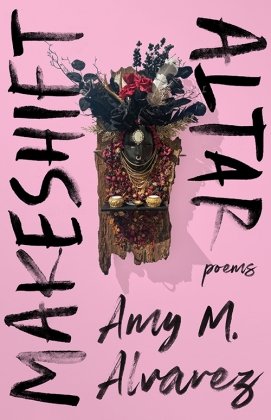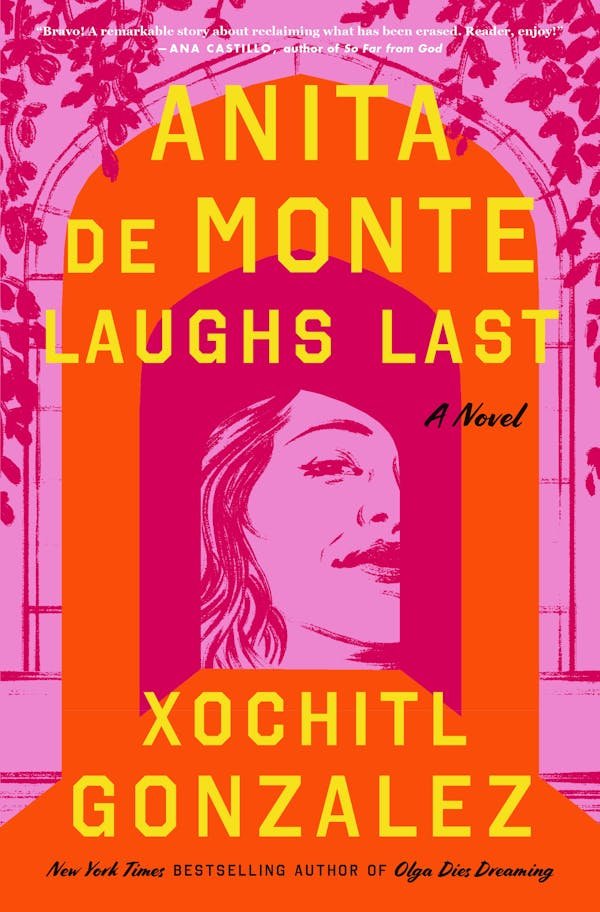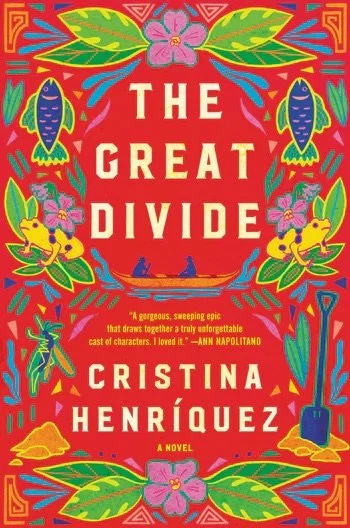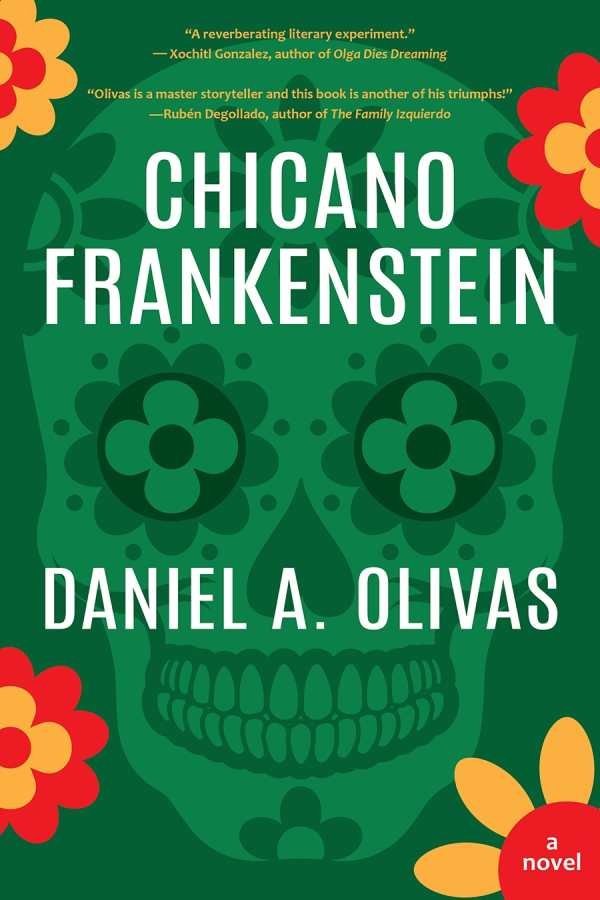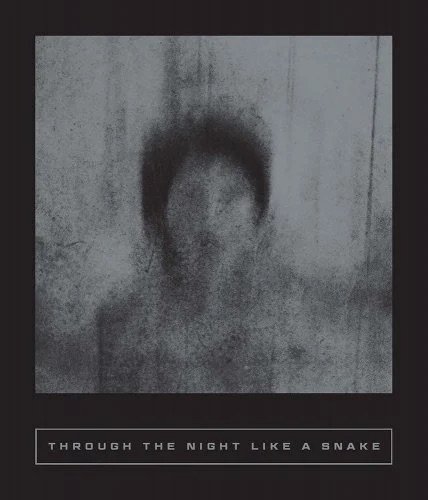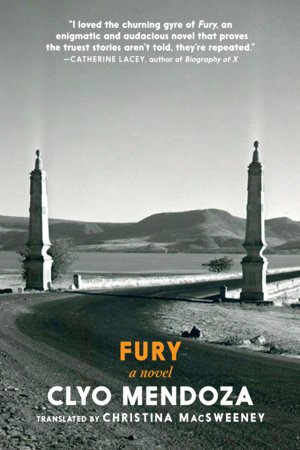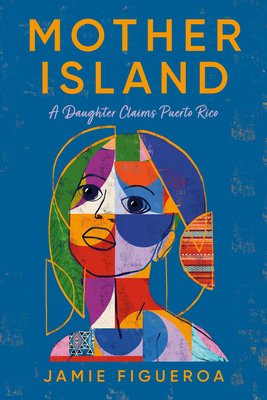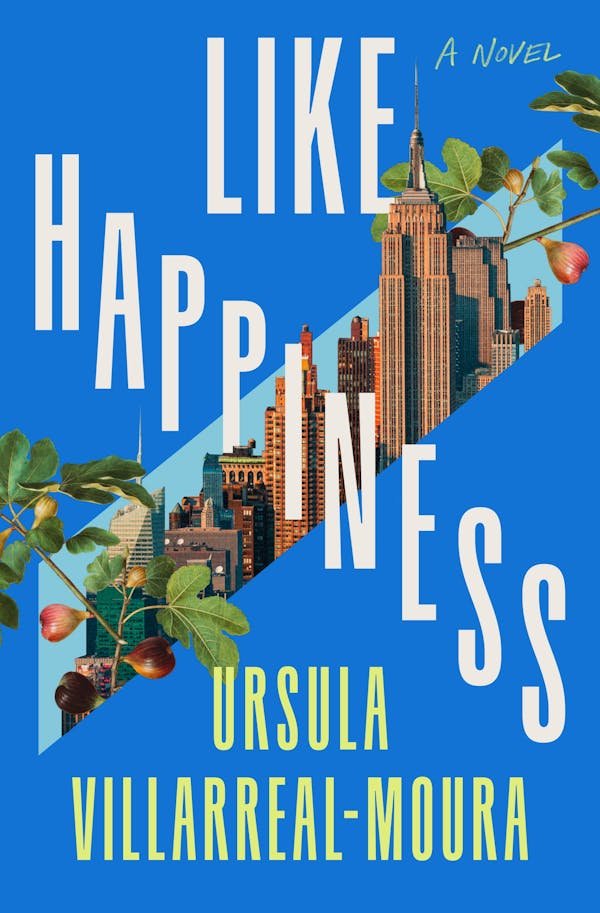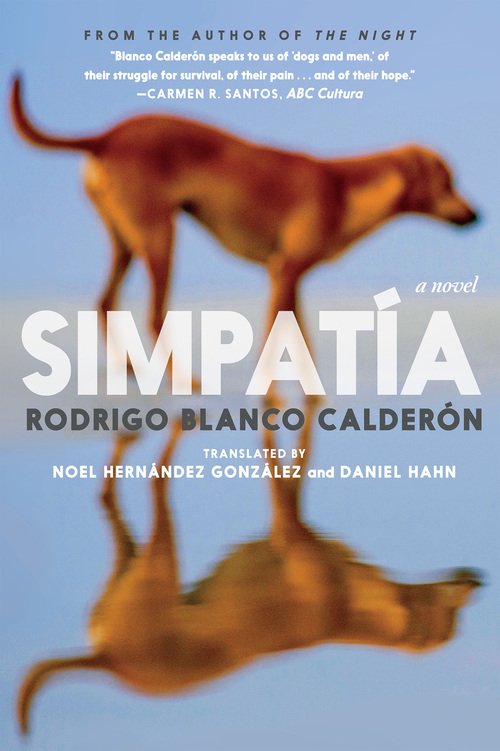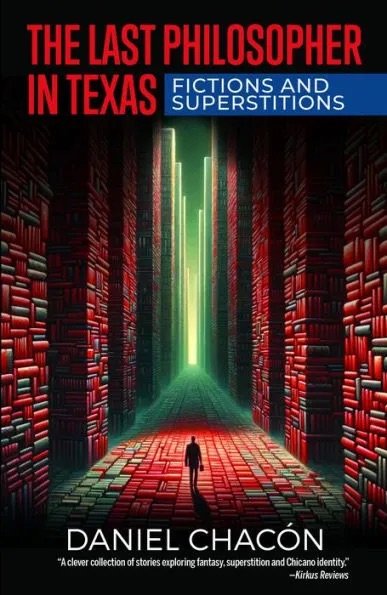On Sale March 1
Makeship Altar by Amy M. Alvarez | POETRY
Amy M. Alvarez explores the cultural, spiritual, and place-based experiences of Afro-Caribbean and African American diasporic peoples in this haunting and emotionally charged collection of poems that meditates on the meaning of home and existence. Born in New York City to Jamaican and Puerto Rican parents, Alvarez draws readers into a journey of self-discovery and identity, connecting the past with the present while highlighting the complexities of navigating life as a multicultural American. The musicality of her language weaves together themes of environment, family, and migration, as well as her own ancestry as a Black Latinx woman. Makeshift Altar is an intimate collection that explores identities forged by colonialism and displacement and shaped by individual choice and collective power.
On Sale March 5
Anita de Monte Laughs Last by Xochitl Gonzalez| ADULT FICTION
1985. Anita de Monte, a rising star in the art world, is found dead in New York City; her tragic death is the talk of the town. Until it isn’t. By 1998 Anita’s name has been all but forgotten—certainly by the time Raquel, a third-year art history student is preparing her final thesis. On College Hill, surrounded by privileged students whose futures are already paved out for them, Raquel feels like an outsider. Students of color, like her, are the minority there, and the pressure to work twice as hard for the same opportunities is no secret.
But when Raquel becomes romantically involved with a well-connected older art student, she finds herself unexpectedly rising up the social ranks. As she attempts to straddle both worlds, she stumbles upon Anita’s story, raising questions about the dynamics of her own relationship, which eerily mirrors that of the forgotten artist.
Moving back and forth through time and told from the perspectives of both women, Anita de Monte Laughs Last is a propulsive, witty examination of power, love, and art, daring to ask who gets to be remembered and who is left behind in the rarefied world of the elite.
Thirst by Marina Yuszczuk| Translated by Heather Cleary| ADULT FICTION
It is the twilight of Europe’s bloody bacchanals, of murder and feasting without end. In the nineteenth century, a vampire arrives from Europe to the coast of Buenos Aires and, for the second time in her life, watches as villages transform into a cosmopolitan city, one that will soon be ravaged by yellow fever. She must adapt, intermingle with humans, and be discreet.
In present-day Buenos Aires, a woman finds herself at an impasse as she grapples with her mother’s terminal illness and her own relationship with motherhood. When she first encounters the vampire in a cemetery, something ignites within the two women—and they cross a threshold from which there’s no turning back.
The Great Divide by Cristina Henriquez| ADULT FICTION
It is said that the canal will be the greatest feat of engineering in history. But first, it must be built. For Francisco, a local fisherman who resents the foreign powers clamoring for a slice of his country, nothing is more upsetting than the decision of his son, Omar, to work as a digger in the excavation zone. But for Omar, whose upbringing was quiet and lonely, this job offers a chance to finally find connection.
Ada Bunting is a bold sixteen-year-old from Barbados who arrives in Panama as a stowaway alongside thousands of other West Indians seeking work. Alone and with no resources, she is determined to find a job that will earn enough money for her ailing sister's surgery. When she sees a young man--Omar--who has collapsed after a grueling shift, she is the only one who rushes to his aid.
John Oswald has dedicated his life to scientific research and has journeyed to Panama in single-minded pursuit of one goal: eliminating malaria. But now, his wife, Marian, has fallen ill herself, and when he witnesses Ada's bravery and compassion, he hires her on the spot as a caregiver. This fateful decision sets in motion a sweeping tale of ambition, loyalty, and sacrifice.
Chicano Frankenstein by Daniel A. Olivas| ADULT FICTION
An unnamed paralegal, brought back to life through a controversial process, maneuvers through a near-future world that both needs and resents him. As the United States president spouts anti-reanimation rhetoric and giant pharmaceutical companies rake in profits, the man falls in love with lawyer Faustina Godínez. His world expands as he meets her network of family and friends, setting him on a course to discover his first-life history, which the reanimation process erased. With elements of science fiction, horror, political satire and romance, Chicano Frankenstein confronts our nation's bigotries and the question of what it truly means to be human.
Say Hello to My Little Friend by Jennine Capó Crucet| ADULT FICTION
Failed Pitbull impersonator Ismael Reyes—you can call him Izzy—might not be the Scarface type, but why should that keep him from trying? Growing up in Miami has shaped him into someone who dreams of being the King of the 305, with the money, power, and respect he assumes comes with it. After finding himself at the mercy of a cease-and-desist letter from Pitbull’s legal team and living in his aunt’s garage-turned-efficiency, Izzy embarks on an absurd quest to turn himself into a modern-day Tony Montana.
When Izzy’s efforts lead him to the tank that houses Lolita, a captive orca at the Miami Seaquarium, she proves just how powerful she and the water surrounding her really are—permeating everything from Miami’s sinking streets to Izzy’s memories to the very heart of the novel itself. What begins as Izzy’s story turns into a super-saturated fever dream as sprawling and surreal as the Magic City, one as sharp as an iguana’s claws, and as menacing as a killer whale’s teeth. As the truth surrounding Izzy’s boyhood escape from Cuba surfaces, the novel reckons with the forces of nature, with the limits and absence of love, and with the dangers of pursuing a tragic inheritance.
Bad Mexican, Bad American by Jose Hernandez Diaz| POETRY
In Bad Mexican, Bad American, the minimalist, working-class aesthetic of a "disadvantaged Brown kid" takes wing in prose poems that recall and celebrate that form's ties to Surrealism. With influences like Alberto Ríos and Ray Gonzalez on one hand, and James Tate and Charles Baudelaire on the other, the collection spectacularly combines "high" art and folk art in a way that collapses those distinctions, as in the poem "My Date with Frida Kahlo" "Frida and I had Cuban coffee and then vegetarian tacos. We sipped on mescal and black tea. At the end of the night, I tried to make a move on her. She feigned resistance at first but then aggressively kissed me back. We kissed for about thirty minutes beneath a protest mural by David Alfaro Siqueiros."
Bad Mexican, Bad American demonstrates how having roots in more than one culture can be both unsettling and rich: van Gogh and Beethoven share the page with tattoos, graffiti, and rancheras; Quetzalcoatl shows up at Panda Express; a Mexican American child who has never had a Mexican American teacher may become that teacher; a parent's "broken" English is beautiful and masterful. Blending reality with dream and humility with hope, Hernandez Diaz contributes a singing strand to the complex cultural weave that is twenty-first-century poetry.
On Sale March 12
Victim by Andrew Boryga| ADULT FICTION
Javier Perez is a hustler from a family of hustlers. He learns from an early age how to play the game to his own advantage, how his background--murdered drug dealer dad, single cash-strapped mom, best friend serving time for gang activity--can be a key to doors he didn't even know existed. This kind of story, molded in the right way, is just what college admissions committees are looking for, and a full academic scholarship to a prestigious university brings Javi one step closer to his dream of becoming a famous writer.
As a college student, Javi embellishes his life story until there's not even a kernel of truth left. The only real connection to his past is the occasional letter he trades with his childhood best friend, Gio, who doesn't seem to care about Javi's newfound awareness of white privilege or the school-to-prison pipeline. Soon after Javi graduates, a viral essay transforms him from a writer on the rise to a journalist at a legendary magazine where the editors applaud his "unique perspective." But Gio more than anyone knows who Javi really is, and sees through his game. Once Gio's released from prison and Javi offers to cut him in on the deal, will he play along with Javi's charade, or will it all come crumbling down?
Through the Night Like a Snake by Mónica Ojeda, Tomás Downey, Camila Sosa Villada, Julián Isaza, Maximiliano Barrentos, Mariana Enriquez, Lina Munar Guevara, Antonio Diza Oliva| Edited by Sarah Coolige |ANTHOLOGY
A boy explores the abandoned house of a dead fascist...
A leaked sex tape pushes a woman to the brink...
A sex worker discovers a dark secret among the nuns of the pampas...
The mountain fog is not what it seems...
Kermit the Frog dreams of murder...
In ten chilling stories from an ensemble cast of contemporary Latin American writers, including Mariana Enriquez (tr. Megan McDowell), Camila Sosa Villlada (tr. Kit Maude), Claudia Hernández (tr. by Julia Sanches and Johanna Warren) and Mónica Ojeda (tr. Sarah Booker and Noelle de la Paz), horror infiltrates the unexpected, taboo regions of the present-day psyche.
Reinbou by Pedro Cabiya| Translated by Jessica Powell| ADULT FICTION
In 1976 Santo Domingo, Ángel Maceta uncovers the real story behind the murder of his father, Puro Maceta, ten years prior. In the process, events that unfolded during and after the war are revealed, unleashing a series of small revolutions in his community that in turn unravel other intrigues of what really took place during the Civil War of 1965.
Weaving together the brutal realities of war with the innocence of childhood imagination, Reinbou explores this era in Dominican society, a time when the U.S. sent Marines into the country to back a coup against Juan Bosch, the first democratically elected president of the Dominican Republic since the end of the brutal, three-decade-long dictatorship of the genocidal Rafael Trujillo. Moving between 1965 and 1976, we follow the revolutionary efforts of Puro and the transformative, feverish adventures of Ángel.
Told through the eyes of a child and a varied cast of friends, family, and neighbors, Reinbouexplores the consequences of political and societal upheaval, corruption, and violence in modern Dominican society.
Fury by Clyo Mendoza| Translated by Christina Macsweeney | ADULT FICTION
In a desert dotted with war-torn towns, Lázaro and Juan are two soldiers from opposing camps who abandon the war and, while fleeing, become lovers and discover a dark truth. Vicente Barrera, a salesman who swept into the lives of women who both hated and revered him, spends his last days tied up like a mad dog. A morgue worker, Salvador, gets lost in the desert and hallucinating from heat and thirst, mistakes the cactus for the person he loves. Over the echoes of the stories of these broken men--and of their mothers, lovers and companions--Mendoza explores her characters' passions in a way that simmers on the page, and then explodes with pain, fear and desire in a landscape that imprisons them.
After winning the International Sor Juana Inés de la Cruz Poetry Prize, Clyo Mendoza has written a novel of extraordinary beauty where language embarks on a hallucinatory trip through eroticism, the transitions of conscience, and the possibility of multiple beings inhabiting a single body. In this journey through madness, incest, sexual abuse, infidelity, and silence, Fury offers a moving questioning of the complexity of love and suffering. The desert is where these characters' destinies become intertwined, where their wounds are inherited and bled dry. Readers will be blown away by the sensitivity of the writing, and will shudder at the way violence conveyed with a poetic forcefulness and a fierce mastery of the Mexican oral tradition.
La Mala Suerte Is Following Me by Ana Siqueira| Illustrated by Carlos Vélez Aguilera | PICTURE BOOK
Miguel's abuelita warned him that opening an umbrella in the house will bring La Mala Suerte (Mrs. Bad Luck) who will follow him wherever he goes, and now Miguel's life is ruined! He trips, fails an exam, and he can't block a shot to save his life at soccer practice. Nothing he tries works to get rid of Mrs. Bad Luck--looking for a four-leaf clover, his aunt's "existential" oils... Now what? Using integrated Spanish words and playful language, La Mala Suerte Is Following Me takes a silly and heartfelt look at superstitions.
On Sale March 19
The Waves Take You Home by María Alejandra Barrios Vélez | ADULT FICTION
Violeta Sanoguera had always done what she was told. She left the man she loved in Colombia in pursuit of a better life for herself and because her mother and grandmother didn't approve of him. Chasing dreams of education and art in New York City, and with a new love, twenty-eight-year-old Violeta establishes a new life for herself, on her terms. But when her grandmother suddenly dies, everything changes.
After years of being on her own in NYC, Violeta finds herself on a plane back to Colombia, accompanied at all times by the ghost of her grandmother who is sending her messages and signs, to find she is the heir of the failing family restaurant, the very one Abuela told her to run from in the first place. The journey leads her to rediscover her home, her grandmother, and even the flame of an old love.
Mother Island: A Daughter Claims Puerto Rico by Jamie Figueroa | ADULT NONFICTION
Growing up in the Midwest, raised by a Puerto Rican mother who was abandoned by her family, Jamie Figueroa and her sisters were estranged from their culture, consumed by the whiteness that surrounded them. In Mother Island, Figueroa traces her search for identity as shaped by and against a mother who settled into the safety of assimilation. In lyrical, blistering prose, Figueroa recalls a childhood in Ohio in which she was relegated to the background of her mother's string of failed marriages; her own marriage in her early twenties to a man twice her age; how her work as a licensed massage therapist helped her heal her body trauma; and how becoming a mother has reshaped her relationship to her family and herself. Only as an adult in New Mexico was Figueroa able to forge her own path, using writing to recast her origin story. In a journey that takes her to Puerto Rico and back, Figueroa looks to her ancestors to reimagine her relationship to the past and to her mother's native island, reaching beyond her own mother into a greater experience of mothering and claiming herself.
In stunning prose that draws from Puerto Rican folklore and mythology, a literary lineage of women writers of color, and narratives of identity, Figueroa presents a cultural coming-of-age story. Candid and raw, Mother Island gets to the heart of the question: Who do we become when we are no longer trying to be someone else?
On Sale March 26
Mamá’s Panza/ La panza de mamá by Isabel Quintero | Illustrated by Iliana Galvez | Translated by Aida Salazar |PICTURE BOOK
Everyone has a panza--it can be big and round, soft and small, or somewhere in between. But a young boy's favorite panza of all is Mamá's. Her panza is capable of remarkable things, and she loves it as an important part of herself. Her panza was also his first home. Even before he was born, it cradled and held him.
When he's feeling shy and needs a place to hide or when he wants somewhere to rest during a bedtime story, Mamá's panza is always there. With affirming text by Isabel Quintero and vivid art by Iliana Galvez, Mamá's Panza is a young boy's love letter to his mother, along with a celebration of our bodies and our bellies.
Like Happiness by Ursula Villareal-Moura |ADULT FICTION
It's 2015, and Tatum Vega feels that her life is finally falling into place. Living in sunny Chile with her partner, Vera, she spends her days surrounded by art at the museum where she works. More than anything else, she loves this new life for helping her forget the decade she spent in New York City orbiting the brilliant and famous author M. Domínguez.
When a reporter calls from the US asking for an interview, the careful separation Tatum has constructed between her past and present begins to crumble. Domínguez has been accused of assault, and the reporter is looking for corroboration.
As Tatum is forced to reexamine the all-consuming but undefinable relationship that dominated so much of her early adulthood, long-buried questions surface. What did happen between them? And why is she still struggling with the mark the relationship left on her life?
Simpatía by Rodrigo Blanco Calderón |Translated by Noel Hernández González and Daniel Hahn | ADULT FICTION
Simpatía is a suspenseful novel with unexpected twists and turns about the agony of Venezuela and the collapse of Chavismo.
Simpatía is set in the Venezuela of Nicolas Maduro amid a mass exodus of the intellectual class who have been leaving their pets behind. Ulises Kan, the protagonist and a movie buff, receives a text message from his wife, Paulina, saying she is leaving the country (and him). Ulises is not heartbroken but liberated by Paulina's departure. Two other events end up disrupting his life even further: the return of Nadine, an unrequited love from the past, and the death of his father-in-law, General Martín Ayala. Thanks to Ayala's will, Ulises discovers that he has been entrusted with a mission--to transform Los Argonautas, the great family home, into a shelter for abandoned dogs. If he manages to do it in time, he will inherit the luxurious apartment that he had shared with Paulina.
This novel centers on themes of family and orphanhood in order to address the abuse of power by a patrilineage of political figures in Latin America, from Simón Bolívar to Hugo Chávez. The untranslatable title, Simpatía, which means both sympathy and charm, ironically references the qualities these political figures share. In a morally bankrupt society, where all human ties seem to have dissolved, Ulises is like a stray dog picking up scraps of sympathy. Can you really know who you love? What is, in essence, a family? Are abandoned dogs proof of the existence or non-existence of God? Ulises unknowingly embodies these questions, as a pilgrim of affection in a post-love era.
On Sale March 31
The Last Philosopher in Texas: Fictions and Superstitions by Daniel Chacón | ADULT FICTION
llusion and the possibility of magic coexist with the pain and joy of daily life in these compelling pieces mostly set in the Texas-Mexico border region. In one, a girl desperately wants to know more about her mother, who died when she was four years old. Did she like being a mom? Would she have preferred partying with her friends? When her eccentric aunt says she can teach her how to travel back in time, the girl is skeptical. Is it really possible to visit the past and communicate with the dead?
Each story is a celebration of the narrative’s power to transport, enlighten and connect the reader to the myriad facets of the human experience. In “Borges and the Chicanx,” a Chicano professor’s imposter syndrome worsens when he is asked to teach a course on a famed Latin American writer he has never read and whose work he doesn’t understand. And in “Sara’s Chest of Drawers,” a young man’s parents insist he go through his dead twin sister’s things even though he doesn’t think she would want him to—until she sends him a sign from the beyond.
Dreams, memories, visions and superstitions permeate this collection of short fiction that blends the ordinary with the extraordinary, making the fantastical feel surprisingly tangible. Considering themes of outsider status and displacement, cultural representation and authenticity, identity and collective memory, award-winning author Daniel Chacón once again crafts troubled characters searching for salvation from sorrows they often cannot even articulate.


